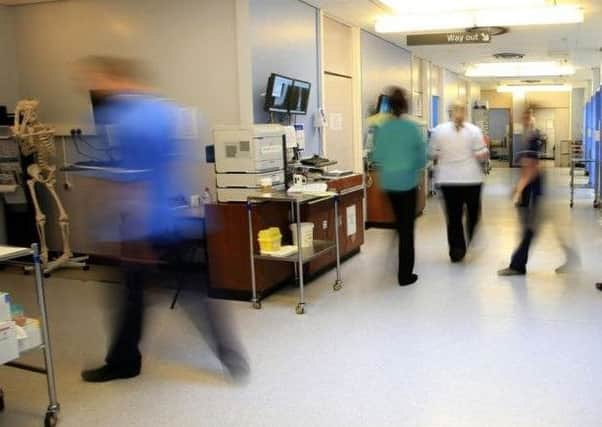Jayne Dowle: Look after health of those who are saving our lives


The General Medical Council spoke to 55,000 doctors in training and almost half of them came back and reported that their daytime workload was “heavy” or “very heavy”. In emergency medicine, the proportion of trainees who felt completely over-burdened rose to a staggering 78 per cent.
Across the survey, the message was clear. The more demanding the hours expected, the more concerns trainee doctors expressed about their competence to do the job. Which leaves patients at risk, obviously. I say obviously, but I do wonder whether anyone in Government is listening. This is yet another indication of the real concerns the medical profession has about what is happening in our hospitals. I don’t suppose the Secretary of State for Health will take any notice of it. Again.
Advertisement
Hide AdAdvertisement
Hide AdJust how many polls and reports will it take to prove to Jeremy Hunt that he has to make junior doctors a special case? How many impassioned pleas from junior doctors themselves? How many serious concerns from senior leaders in medicine? And how many avoidable patient deaths must families endure? It seems that all of these entreaties fall on deaf ears at the Department of Health.
Yet, anyone who has had anything to do with a hospital recently could speak from personal experience of the challenge that all medical staff face. As my own father has been in and out of Barnsley General all year, I’ve had plenty of time to observe.
I’ve seen those trainees sitting there with their heads in their hands, barely able to keep their eyes open. I’ve witnessed the misunderstandings and mistakes that are made when there are simply not enough members of staff on duty for a ward to run efficiently.
I’ve seen the shattered staff sitting in the canteen at the end of a shift, literally falling asleep into their food. And I’ve wondered, every time, how this can be happening in a health service which still prides itself on being one of the best in the world?
Advertisement
Hide AdAdvertisement
Hide AdThe hours and conditions that some of these young doctors (and student nurses) are expected to work would not be tolerated in a Victorian factory. Dad and I spoke to one student nurse who was averaging four to five hours sleep in every 24 hours. I can’t say “night” because her shift pattern was such that the concept of night and day had become irrelevant. She also had a journey of almost two hours from hospital to home each way, involving two buses and a 15-minute walk.
Do you think that Jeremy Hunt actually realises that this kind of thing is happening in every hospital in the country? He has the power to make a difference, yet seems to blithely ignore the facts and first-hand experiences which are presented before him.
Dr Pete Campbell, who represents junior doctors for the British Medical Association, says that it is still far too common for junior doctors to be sleep-deprived after regularly working beyond their rostered hours, on rotas that are desperately short of doctors.
Dr Campbell adds that the public and patients might be shocked at the findings of this recent poll. I would disagree with him here. We can see it only too well, every time we enter a hospital. And those patients who sit and complain that doctors are ignoring them or appear distracted or even confused would do well to remember that there are factors at work here beyond the control of us all.
Advertisement
Hide AdAdvertisement
Hide AdIf we can see what’s happening, why doesn’t the Health Secretary do something about it? His department needs to encourage and support more trainees to enter medicine. This requires funding and a commitment from the government to invest in the future of the NHS.
Working practices simply must be investigated and reformed, to make it safe for all medical staff to do their jobs effectively and without exhaustion. In addition, too many highly-talented young people are leaving the profession for the sake of their own health, before they have the opportunity to train further to become much-needed GPs or consultants. If the system is not working from the bottom up, it does not bode well for the next generation of senior medical practitioners the nation needs.
I’ll leave you with this thought. It isn’t scientific. It doesn’t come from academic research or any public policy document. It comes direct from a patient on a ward I spoke to earlier this year. If the Government can lay down legislation to protect airline staff, train drivers and lorry drivers, why can’t it do the same for those who carry out a job which goes beyond the call of duty? Doctors can hold the power of life over death. It doesn’t get more important than that.